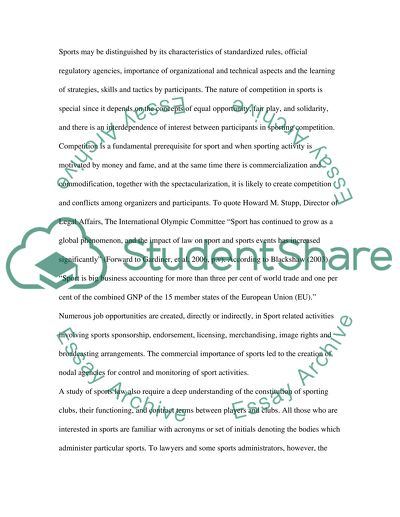Cite this document
(“Legal Perspective of International Football Essay - 1”, n.d.)
Legal Perspective of International Football Essay - 1. Retrieved from https://studentshare.org/sports-and-recreation/1526906-legal-perspectives-of-international-football-essay
Legal Perspective of International Football Essay - 1. Retrieved from https://studentshare.org/sports-and-recreation/1526906-legal-perspectives-of-international-football-essay
(Legal Perspective of International Football Essay - 1)
Legal Perspective of International Football Essay - 1. https://studentshare.org/sports-and-recreation/1526906-legal-perspectives-of-international-football-essay.
Legal Perspective of International Football Essay - 1. https://studentshare.org/sports-and-recreation/1526906-legal-perspectives-of-international-football-essay.
“Legal Perspective of International Football Essay - 1”, n.d. https://studentshare.org/sports-and-recreation/1526906-legal-perspectives-of-international-football-essay.


